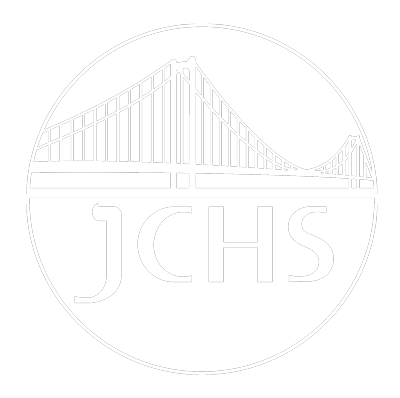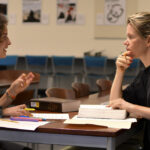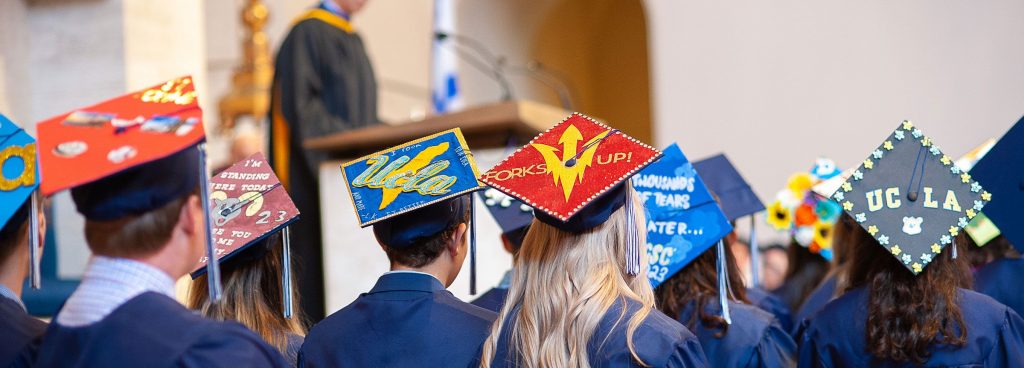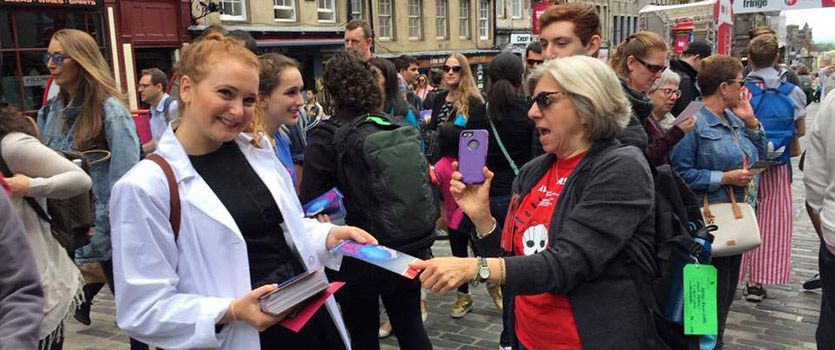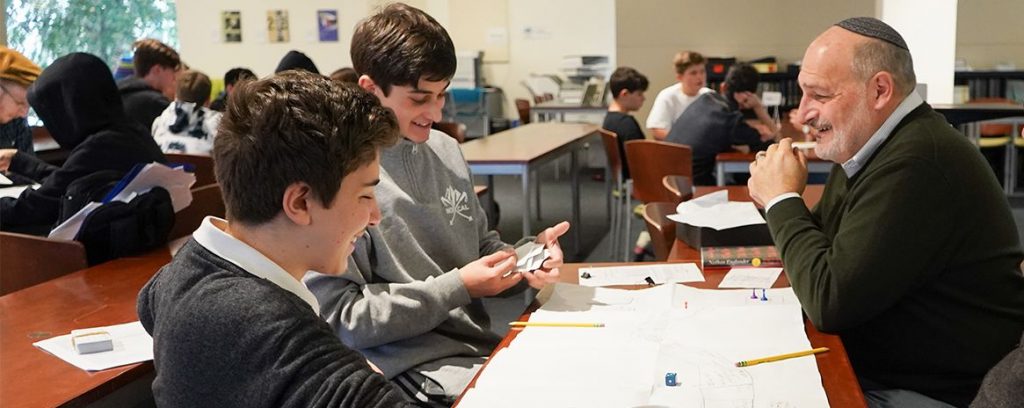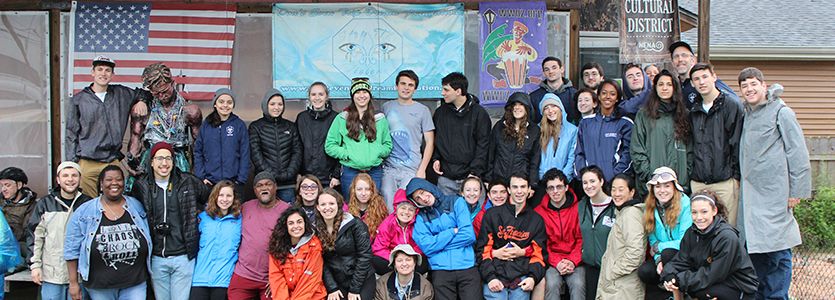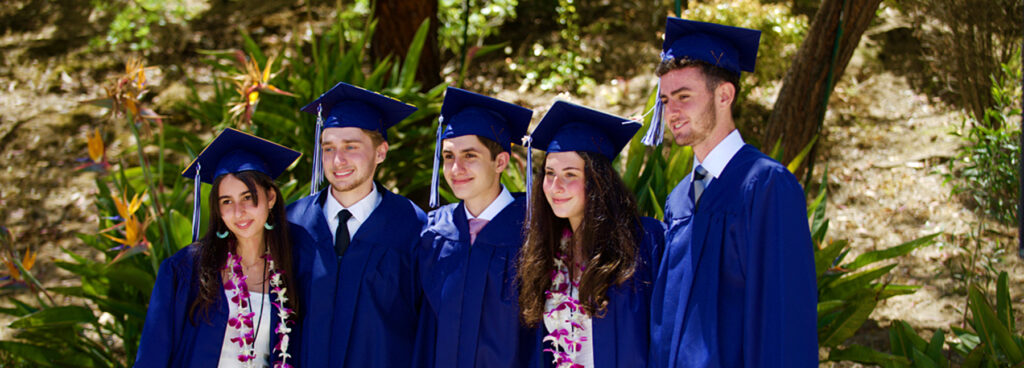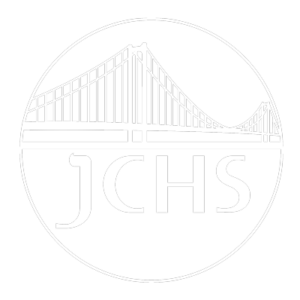Jewish Studies
The Jewish Studies program allows students to access thousands of years of wisdom, values, thought and culture.
The Jewish Studies program allows students to access thousands of years of wisdom, values, thought and culture. Our teachers guide students in asking and answering questions of ultimate concern and developing their individual identities. We train students to observe the nuances of language as a central skill in the critical thinking process. We teach students that they have a responsibility to themselves, to their peers and to the text in their learning. The Jewish Studies curriculum focuses on four core subject areas (Bible, Rabbinic Literature, History, and Culture) as well as different levels of study. We believe these subject areas represent the core of Jewish literacy as well as provide a solid foundation for lifelong Jewish learning.
Our program seeks to build and expand student skills in the areas of textual analysis, analytical and critical thinking and traditional text study. Our students develop sophisticated intellectual tools to develop their own personal Jewish identity and sustain their learning into adulthood. Our diverse course offerings allow students to explore the Jewish tradition broadly or dive deeply into particular areas of study.
Levels of Study in Jewish Studies Courses
- Students are placed in different class levels based on past exposure with Jewish texts, knowledge of Hebrew and critical thinking and writing abilities.
- All our levels prepare students for continued Jewish learning at the university level. Additionally, our advanced Hebrew intensive courses prepare students for continued Jewish text study in traditional Jewish settings.
Click on any course name below to learn more.
Jewish Studies Core Courses
Subject Area: Tanach (Bible)
Open to: 9
This course focuses on the skills of textual interpretation, meaning making and narrative analysis. Our sacred texts help us think about who we are and who we want to be. Students in this class will encounter Jewish texts predominantly from the Tanach (Bible) and will explore what it means to be their “true self” and how individuals play a role in the building of community and a nation. Students in this class will learn how to read carefully, write analytically, speak persuasively and listen closely to their peers and the text. Students will wrestle with questions of freewill, leadership, responsibility and consequences.
Please Note: Students in “English” will use texts only in English. Students in “Dual” will encounter the texts in English and develop their skills in reading the Hebrew text. Students in “Hebrew” will read the text in the original Hebrew, with specific focus on learning how to translate and identify literary devices to understand the complexity of the text.
Subject Area: Rabbinic Literature
Open to: 10
Rabbinic Literature is a collection of conversations from ancient Rabbis compiled over several centuries (0 – 600CE). Their ideas and conversations become the basis for many of the ways Jewish life is practiced today. These conversations are recorded in the Mishna and Talmud, which are the primary texts studied in this class. This course will introduce students to the world of the Rabbis and their texts, while developing essential skills such as critical thinking, problem solving, creativity, and collaboration. Among the topics explored are the evolution of Jewish law and practice, the power of Aggadot/Rabbinic stories, the function of laws, what our responsibilities are in society, and how we can use Jewish texts as a source for personal meaning. Additionally, students will complete an integrated project with their Chemistry classes exploring liability in a contemporary case of damage.
Subject Area: Rabbinic Literature
Open to: 9, 10
Prerequisite(s): Department Approval
What does a passage tell us about the lives, beliefs, values, and logic of the people who originally wrote it? How does the development, structure, and content of the Mishnah and Gemara reflect pluralistic values? How can we apply ancient Jewish damage law to modern cases of negligence that we read about in the news? These are some of the core questions that we explore in MIshnah and Gemara. Through its preservation of multiple perspectives and debates, the Talmud (made up of the Mishnah and Gemara) models intellectual and civil discourse where a range of interpretations are engaged and considered in an effort to articulate collective norms and a vision for a just society. In this class, we study both the form and content of this civil discourse. We read the Talmud in its original Hebrew and Aramaic, paying close attention to recurring logical and literary structures in order to develop Talmud study skills. We consider the scope and scale of the Talmud and explore its literary genres by looking at specific texts that center around themes of ethics, intention, responsibility, pluralism, and constructive disagreement. Ultimately, we explore how Rabbinic teachings and values apply to our lives today and inform our own Jewish identities.
Subject Area: Jewish History
Open to: 11
What does being Jewish mean in the 21st century? How did we get here, and where can we go in the future? In this class we will study how Judaism, Jewish practice, Jewish identity and Jewish politics changed in modernity to discover models for how we may craft a moral and meaningful Jewish life in the 21st century.
We will explore: how Judaism evolved from traditional community-rooted practice to diverse modern theologies and denominations, Jewish responses to the challenges of liberalism and nationalism – including the rise of Zionism and the establishment of the State of Israel, and the the place of Jews in the modern idea of race – including the racialization of Jews in the Shoah (Holocaust) and the complex place of Jews in the American racial landscape. Students will have the opportunity to explore a topic of personal interest and strengthen their research, analysis and writing skills through an independent research paper.
Subject Area: Jewish Culture
Open to: 12
What is “Jewish Thought”? What makes a thought Jewish? What makes Jewish Philosophy Jewish Philosophy? How do the ideas of our greatest Jewish thinkers and writers relate to our everyday Jewish lives today? In what ways are we in fact Jewish thinkers ourselves? In what ways is “Jewish thought” a living, ongoing, contemporary tradition? Reading a diverse range of sources – from Solomon Ibn Gabirol to I.L. Peretz, from Muriel Rukeyser to Hannah Arendt – students will dive head-first into these crucial open-ended questions, which animate and in many cases define modern and contemporary conversations around collective Jewish knowledge, culture and what we may begin to call Jewishness. To engage with these questions we will rely on various creative and critical tools, learning to read and write across multiple disciplines, including philosophy, poetry, sociology, history, cultural criticism and theology. This course engages closely with the students’ concurrent English course, including collaborating on an integrated essay across and between classes. Students will also complete a 8-12 page “Senior Thesis” writing an in-depth research paper on a topic of their choosing relating to past, present and future visions of Jewish civilization and culture.
Subject Area: Jewish Culture
Open to: 12
Prerequisite(s): Department Approval
Students in this class immerse themselves in challenging philosophical, theological and literary sources that address major questions about what it means to be a Jew in the modern (and postmodern) world. Engaging in a college-level cultural studies and intellectual historical approach that tracks the evolution of Jewish thinkers and texts over time, students will read a wide range of rich and challenging authors, from Moses Medelssohn to Rabbi Nachman of Breslov, from Kadya Molodowsky to Haviva Padaya, from Nelly Sachs to Primo Levi. Units covered in the course include: “Diaspora, Modernity and the Individual Jew”, “Anti-Semitism, Holocaust and the Will to Bear Witness”, “History, Memory, Amnesia–From Jewish Trauma to Post-Trauma” and “Jewish Space Making and the Search for Divinity,” among others. This course engages closely with the students’ concurrent English course, including collaborating on an integrated essay across and between classes. Students in this class devote considerable time to research-based and analytical writing. They will complete a 12-15 page “Senior Thesis” writing an in-depth research paper on a topic of their choosing relating to past, present and future visions of Jewish civilization and culture.
Please Note: Students enrolling in Jewish Thought Honors will be required to complete the Summer Assignment, which involves reading a philosophical essay and responding to a prompt by midnight August 11, 2024. Students who do not complete the Summer Assignment by August 11 will be enrolled in Jewish Thought.
Jewish Studies Elective Courses
Subject Area: Tanach (Bible)
Open to: 10, 11
Prerequisite(s): Hebrew VI (or concurrent enrollment in Hebrew IV) and Department Approval
Torah teaches us that our relationship with God is defined by our relationships with ourselves, other people and the world around us. We will trace how our relationship with God and our community shifts over time from the period of wandering in the desert, the conquest of the land, the building of the Temple and its destruction. We will grapple with the essential question that will frame our learning: How do we relate to God, our community, our friends and family and ourselves? Students will advance their reading and analysis skills to the point of being able to work independently in chevruta.
Subject Area: Tanach (Bible)
Open to: 11, 12
Prerequisite(s): Department Approval
This is an advanced Hebrew text skills course designed to explore the development of seemingly neutral (parve) biblical characters to villains. Our quest is to trace that development and see how commentators arrived at their interpretations. We will explore how these characters have been reinterpreted over centuries and trace that development from pre-chazal to modern literature. We will end the year with a short unit on feminist biblical criticism which is a response to Scripture from the standpoint of feminism and falls in the modern period. Here we will delve deeply into a few narratives where women are depicted as victim, victor and voice. Students will learn to identify ideas that existed that led to the creation of other ideas. They will develop a sense of empowerment to feel ownership to create midrash, to not only consume Torah, but also produce it.
Subject Area: Rabbinic Literature
Open to: 10, 11, 12
Prerequisite(s): Mishna & Gemara and Department Approval
Last Offered: 2022-23 (bi-yearly course)
The Babylonian Talmud is one of the greatest works of world-literature, and lives as the beating heart of Jewish learning. The ideas and conversations of the Rabbis found in the Talmud became the basis for much of the ways Jewish life is practiced today through the creation of laws and a text that became the center of Jewish study. In this course, students engage in traditional intensive Talmud study, and due to the text’s conversational nature our daily learning can involve a panoply of topics from all across the Jewish canon and the ancient world. To learn the skills to learn Talmud is to receive the keys to the kingdom of Jewish learning, and this class is an essential step to begin a lifelong journey of Jewish study.
Please Note: Advanced Rabbinic Literature and Advanced Talmud alternate years. Students can receive separate credit for both courses.
Subject Area: Rabbinic Literature
Open to: 10, 11, 12
Prerequisite(s): Mishna & Gemara and Department Approval
Last Offered: 2023-24 (bi-yearly course)
The Babylonian Talmud is one of the greatest works of world-literature, and lives as the beating heart of Jewish learning. The ideas and conversations of the Rabbis found in the Talmud became the basis for much of the ways Jewish life is practiced today through the creation of laws and a text that became the center of Jewish study. In this course, students engage in traditional intensive Talmud study, and due to the text’s conversational nature our daily learning can involve a panoply of topics from all across the Jewish canon and the ancient world. To learn the skills to learn Talmud is to receive the keys to the kingdom of Jewish learning, and this class is an essential step to begin a lifelong journey of Jewish learning.
Please Note: Advanced Rabbinic Literature and Advanced Talmud alternate years. Students can receive separate credit for both courses.
Subject Area: Tanach (Bible)
Open to: 10, 11, 12
Texts are in English
Psychology, drama and literature merge in this JS course, which explores the relationship of Power and Perception. Stories from the Biblical Book of Judges reveal many of the same elements present in epics like Game of Thrones or Star Wars – and indeed, in any real conflict: on the battlefield, in the boardroom, and in the classroom.
We explore techniques of empowerment and disempowerment: playing with optical Illusions, analyzing mindgames, and learning about psychological warfare. Throughout the year, we encounter warlords, rogues, kings and prophets – side by side with well known figures such as Mohammed Ali, magician Darren Browne, and neurologist Oliver Sacks. Ancient Tanach texts are juxtaposed with sci-fi films such as The Matrix (1997) and fantasies like Harry Potter. All along, we deploy all these new skills and approaches to our Biblical Epic, revealing new levels of drama and psychological instreague!
This course is designed to help students develop their ability to understand and respond to others’ perspectives, and will sharpen skills such as: critical reading and character interpretation. We end the year with a project that focuses on techniques of Conflict Mediation, honing basic skills essential in transforming conflict to collaboration – and uncovering new ways of seeing ourselves and the world around us.
Subject Area: Jewish Culture
Open to: 10, 11, 12
This course introduces students to a range of religions and explores their practices, beliefs, cultures, and communities, focusing mainly on Christianity, Islam, Hinduism, and Buddhism. In each case, we explore three central themes: 1) How do we find a balance in life between letting go and holding on? 2) What can we achieve through a Journey and how might we best prepare ourselves? 3) What are the causes of suffering and how might we respond? We frequently return to Judaism as our central “hub” – looking for similarities and differences, while also intentionally complicating Judaism as not one system, but a diverse Civilization of beliefs and practices.
This course features 2-3 “Video Pen Pal” projects where we correspond with Christian, Muslim and Hindu schools, talking about our own relationship to our cultures and asking questions informed by our learning and research. The curriculum features “Sita Sings the Blues,” an animated interpretation of the Ramayana, “Kundun,” a dramatization of the Dalai Lama’s youth and escape from Tibet, and Herman Hesse’s Siddhartha.
Subject Area: Jewish History
Open to: 11, 12
The Shoah (Holocaust) is one of the central events of modern Jewish history. In this course students will explore the Shoah using a historical/analytical approach. Topics will include Jewish life between the World Wars, European anti-Semitism, the rise of totalitarianism in general and Nazism in particular, the uses of propaganda and mass communication, the evolution of Nazi treatment of Jews in Germany and in the lands conquered by the Wehrmacht, the development and implementation of the final solution within the context of World War Two, Jewish responses to the Nazis, Jewish resistance, international reaction to the Nazi Genocide and the aftermath of Shoah and the Second World War. By the end of this course students will have developed a deep and complex understanding of the Shoah and its impact.
Subject Area: Jewish History
Open to: 11, 12
Cross-listed with Humanities
The history of the Israel-Palestinian conflict is complex. First, because there have been many turning points that have led to the current status quo, and second because each of the primary factions has developed a certain framing of facts and telling of history to justify their actions.
This course aims to uncover these various historical narratives with the hope of providing students with an understanding of the complexities at the root of the conflict, and how these divergent narratives continue to influence the ways Palestinians and Israelis justify their political positions. Students will leave the course with an understanding of the core underlying issues and an appreciation of the variety of resources and perspectives informing the discourse about the conflict in history and today. Through an exploration of the region’s demographics we will investigate the privileges and disabilities available to different populations. To support deep student learning, our course will be framed by dialogue techniques that support open-hearted engagement with diverse narratives.
Please Note: As a cross-listed course, students may choose to count this course towards either their Jewish Studies or Humanities elective graduation requirement.
Subject Area: Jewish Culture
Open to: 10, 11, 12
How do we use Jewish text and tradition to make sense of social injustice, and what tools from this tradition can we use to make positive change? In this course, students draw upon a wide variety of ancient and contemporary Jewish and non-Jewish sources, as well as their own identities and experiences, to define, study, and practice Jewish social justice and look at contemporary social justice issues through a Jewish lens. Students study the essential principles of Jewish social justice; including the value of Btzelem Elohim (all being made in the divine image), the process of teshuvah (repentance and repair), the legacy of the Exodus, the theme of covenant, and the biblical and rabbinic notions of tzedek (justice) and tzedakah. Students explore the role of the prophet as truth teller who challenges the status quo, and study the development of protest in Jewish history. In doing so, students facilitate a dialogue between traditional Jewish sources and the specific social issues we witness and experience in contemporary American life. We move beyond the theoretical, using Jewish wisdom as a toolkit to empower our own practices and strategies for effective social change.
Subject Area: Jewish Culture
Open to: 10, 11, 12
In this course we will take a deep dive into the ways Jews celebrate, commemorate, and consecrate special times, throughout the Jewish calendar year and in life-cycle events. We will explore how Jewish cultural behaviors have evolved over thousands of years by considering the varied ways in which Jews from the many Sephardic and Ashkenazic cultural streams have developed unique ways to symbolically eat, dress, sing, toast, pray, and otherwise celebrate the highlights of Jewish experience. Students will be encouraged to consider their own Jewish heritage and connections, and will create projects in which they put their own personal stamp on Jewish celebration. This class will have experiential components, including cooking, hands-on creative projects, and occasional field trips, as well as a significant focus on the texts and historical backgrounds of the holidays, prayers, and practices that inform these experiences.
Subject Area: Rabbinic Literature
Open to: 11, 12
Texts are given in English
This class is about the Big Questions. The goal of the class is to inform and facilitate growth for effective ethical Jewish citizens – individuals who will be able to navigate and contribute to communal conversations on those Big Questions. Our rich 3,000 year old Jewish traditions have a great deal to teach us and can provide wisdom to better the world around us. While its content may be about situations from bygone eras, their values, insights, and conclusions have much to offer modern discourse. In this course, we examine, among others, the challenging field of medical ethics looking at examples such as human cloning, surrogate motherhood, genetic identity, abortion, and genetic manipulation. We look at the ethics of American citizenship and governance, as well as learn the history of rabbinic ethical discourse. We trace these modern day dilemmas through biblical, Mishnaic and Talmudic literature, as well as survey rabbinic theories from different times and spanning various eras. This course will help students develop their own voice and give them the tools and background necessary to bring that voice to communal dialogue.
Subject Area: Tanach (Bible)
Open to: 10, 11, 12
Texts are in English
Mystery of Connection is an integrated Tanach/Psychology/Sociology course which unpacks the question: What makes a good life? Students focus on texts from Shemot, B’Midbar, Kings and Eicha to understand people’s quest for a good life and to evaluate the challenges that get in the way. In addition, students learn about revelation and the creation and destruction of the Temple, through the lens of architecture and design.
In the second semester, students use architecture/design skills to create a personal temple, using the skills and concepts from the first semester. Students end the year by learning about collective trauma and ways in which people struggle through historical and personal challenges to rebuild after hardships. Grades are a function of quizzes and longer-term projects.
Subject Area: Jewish Culture
Open to: 11, 12
Texts are in English
Cross-listed with Humanities
“America is not a belief, nor a style, not a conception, nor a way in which to think,” wrote the Yiddish American poet Nahum Minkov, “America is a ‘thing’…We make that thing that’s called America, we are that thing. Without us she is—nothing.” Between 1880 and 1924, more than three million Jewish immigrants arrived in the United States from eastern Europe, the majority via New York’s Ellis Island. This course examines the emergence of a distinctly Jewish American literature and literary culture in New York City that was born and grew from this mass immigration over the course of the twentieth-century and into the present day. Through poetry and short stories, novels and short essays, we will begin mapping Jewish New York from the perspective of writing. Some key themes of the course include: narratives of arrival and longing for the “old country”; shifting Jewish racial identities and Jewish American assimilation; Jewish multilingualism and the American melting pot; Jewish American survivor’s guilt and responses to the Holocaust from afar, among others. Students will be asked to respond to a wide range of literary texts through a mix of critical and creative writing, oscillating between wearing the hat of the critic-reader and the hat of the creative-writer.
Please Note: As a cross-listed course, students may choose to count this course towards either their Jewish Studies or Humanities elective graduation requirement.
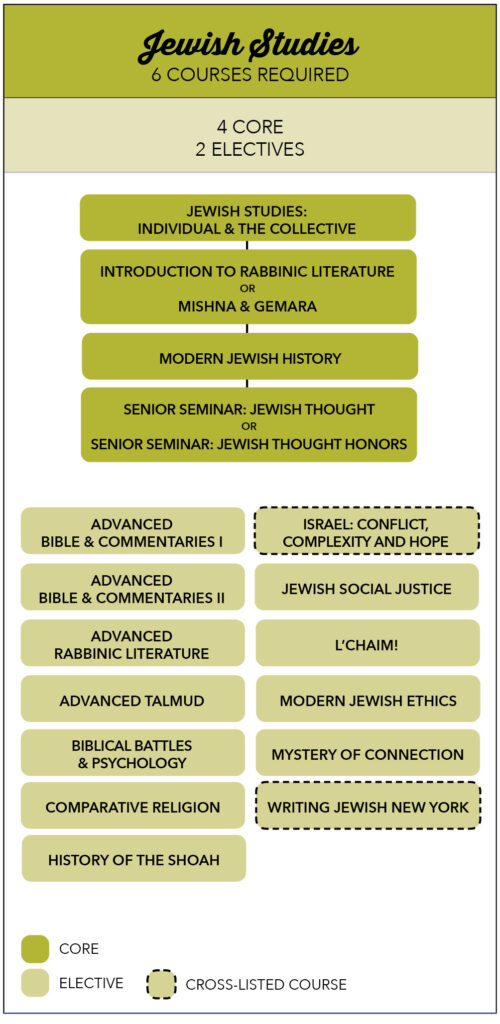
Click here to view the complete Curriculum Map
